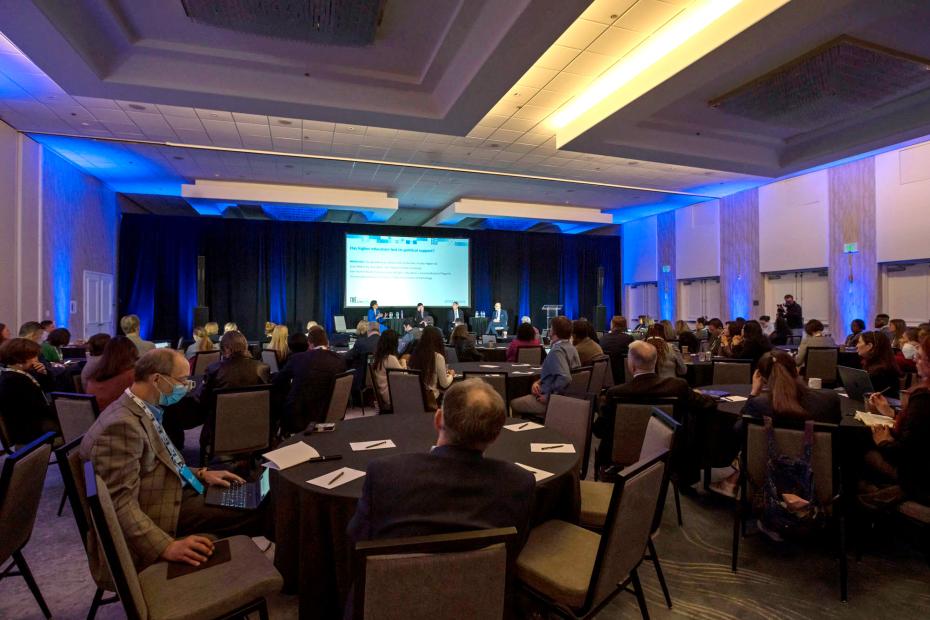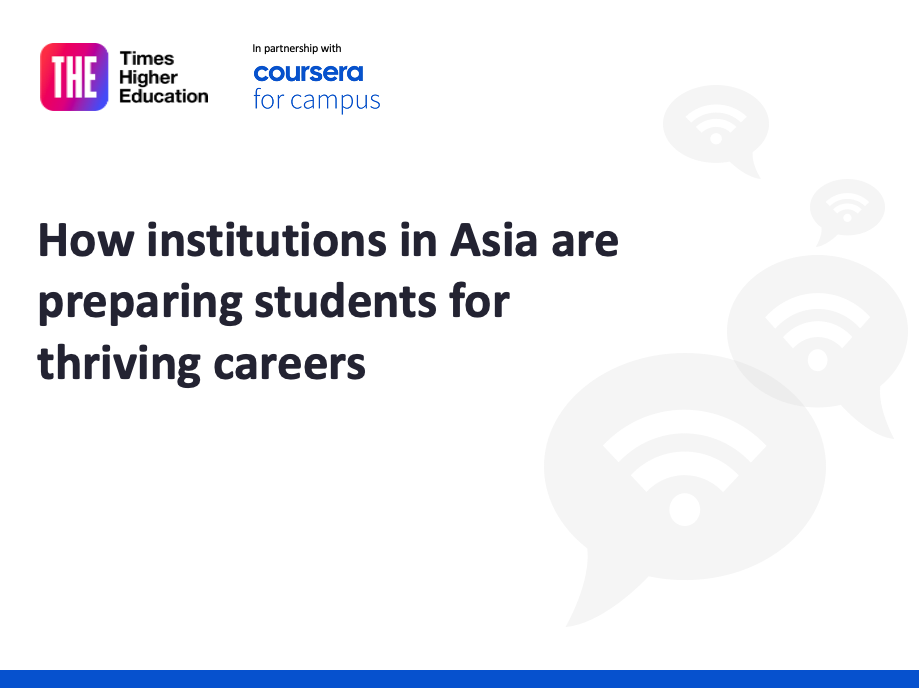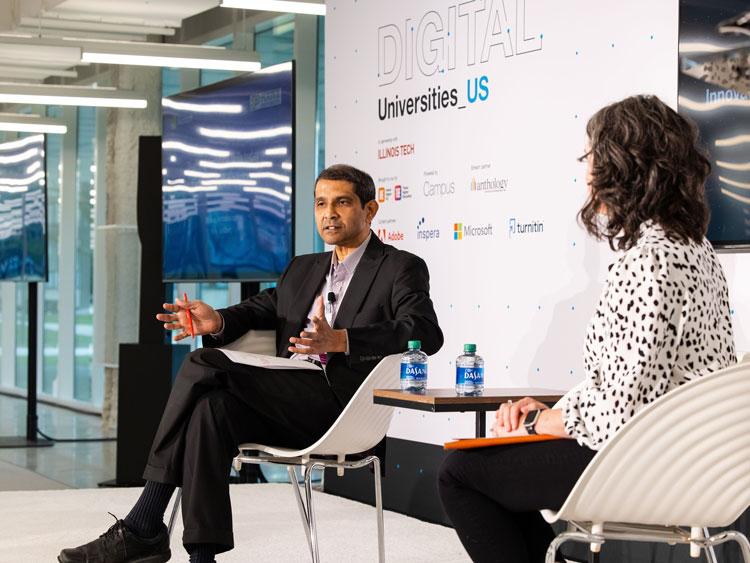In times like these, where cost-of-living crises have affected not only households with low incomes but also those with middle and high incomes, universities can do more than just educate their students. They can create a wider impact on communities by enabling them with the right skills, whether through digital upskilling workshops, financial literacy or setting up their own businesses. Of course, this big responsibility cannot be expected to be delivered by universities alone. This is where the importance of partnerships arises.
As a development manager, I’ve enjoyed building relationships with corporate organisations, fostering them and turning them into lasting partnerships to support our students and the wider community. Our development team has had success in raising funds from major multinational companies such as Sony PlayStation, Netcompany, JCDecaux, Foster + Partners, among others. Here, I’ll share some tips for university staff on how they can foster these partnerships in practical ways, rather than only on an institutional level.
Target socially responsible companies
Start by identifying organisations committed to social responsibility. Look for companies that have signed the UN Sustainable Development Goals or have a clear CSR strategy. While charities are often the first partners considered, universities are increasingly seen as strategic partners – helping companies attract talent, enhance their brand or contribute to equal opportunities.
- A clear vision for university-community partnerships
- A community-university partnership is a relationship, not an affair
- Better together? The secret to successful collaborative arts and humanities PhD research
Before reaching out, check which SDG pillars align with your department or programme, such as quality education, gender equality or reduced inequalities. This makes it easier to start conversations and frame a proposal that resonates with their goals.
It takes a village to build a partnership!
Building relationships takes time and effort but transforming them into lasting partnerships takes even longer – requiring patience, trust and thoughtful stewardship.
The most successful partnerships are those where different teams come together with a shared purpose, showing companies that the university is coordinated, committed and ready to add value on multiple fronts.
We make a conscious effort to involve colleagues across the institution. Companies are connected with the relevant departments to deliver guest lectures, host site visits or run insight days. Careers teams promote internships and graduate roles, admissions teams provide valuable insights into student backgrounds to help make the case for support and alumni teams open doors through their networks and events. Academic colleagues also play a vital role, by weaving external expertise into the curriculum and creating opportunities for students to engage directly with industry.
When these collective efforts align, companies don’t just see single engagement – they experience a partnership that touches different areas of the university, benefits multiple teams and strengthens the relationship over time. It’s this collaborative approach that transforms an initial conversation into a long-term, impactful partnership.
It is all mutual
When the time comes to shape a proposal, it is essential to understand the organisation’s strategy, priorities and long-term ambitions. A university may already have well-established programmes, but flexibility is key – small adjustments can make those initiatives far more relevant and valuable to a partner.
Partnerships should never feel one-sided. Even when the support is philanthropic, it is important to recognise and deliver benefits to the donor. For some organisations, this may mean attracting future talent. For others, it could be about enhancing brand recognition on campus or demonstrating their commitment to equal opportunities. By ensuring the partnership works both ways, universities can build relationships that are sustainable, rewarding and more likely to grow.
Our relationship with Netcompany, a Danish tech company, illustrates this perfectly. Introduced through an alumnus at an event five years ago, it initially sponsored small prizes for Computer Science student projects. After seeing how these prizes motivated students and uncovered talent, Netcompany was eager to continue. Recognising the under-representation of women in the tech sector, we proposed a new scholarship for female STEM students, which the company embraced. Over time, its involvement grew to include mentoring schemes, guest lectures and direct engagement with our students.
This partnership has not only provided life-changing opportunities for students, but has also allowed Netcompany to showcase its values, connect with potential employees and play a visible role in advancing diversity in tech. It is precisely this mutual benefit – where both students and the company gain – that transforms a sponsorship into a true long-term partnership.
Bridge the gap to the private sector with non-profits
As part of our ambitions for Zone 29, our new physical home of careers and enterprise that will open in spring 2026, we want to build partnerships with local organisations to deliver programmes for marginalised groups in our community, helping them gain the skills that London’s employers need. These include digital skills, enterprise skills, and employability and practical skills-based workshops. In doing so, we not only collaborate with the private sector, but also build strong relationships with local charities and NGOs to expand the range and impact of what we can offer.
One such example is our collaboration with Rebel Business School, which specialises in delivering practical workshops on setting up a business for people from all backgrounds. Partnering with the school gave us access to a proven model and a network of mature participants who could attend free of charge.
When we shared these ambitions with Netcompany, it was keen to support people from disadvantaged areas. Together, we created a three-way partnership: a company that sponsors, a charity that delivers and a university that provides the link, facilities and coordination. Netcompany even joined the programme directly, delivering a session on data skills to participants.
The results speak volumes. The workshops reached a diverse audience: 69 per cent of participants were women, 73 per cent identified as from non-white ethnic backgrounds, 61 per cent were receiving government benefits and 45 per cent were unemployed. Beyond reach, the outcomes were transformative: 91 per cent reported they were trading or close to launching a business. On a personal level, 88 per cent reported improved confidence and employment-related skills.
Delivering this kind of impact would have been nearly impossible without the support of both corporate and charity partners. Now that we have a model that works, our aim is to replicate it by establishing new partnerships with charities, NGOs, social enterprises and companies – scaling up opportunities to upskill people and strengthen our wider community.
Collaborate for impact
At the heart of our work is a simple but powerful belief: when universities, corporates and non-profits come together, we can create opportunities that none of us could achieve alone. Our partnerships show that philanthropy, when combined with purpose and strategy, generates real change – breaking barriers, opening doors and empowering individuals from all walks of life. The success of these initiatives reminds us that impact is not a one-way street – it is a shared journey. By continuing to build bridges between sectors, we can scale our reach, inspire innovation and create a lasting legacy for future generations.
Simay Sali Sevik is development manager at the University of Westminster.
If you would like advice and insight from academics and university staff delivered direct to your inbox each week, sign up for the Campus newsletter.




comment